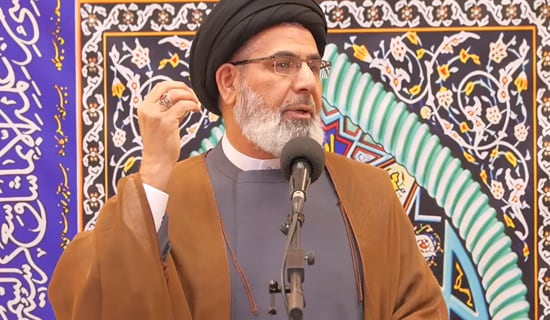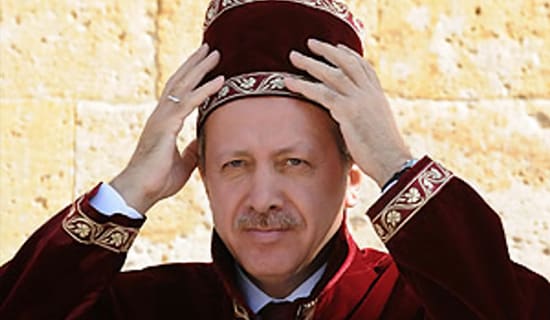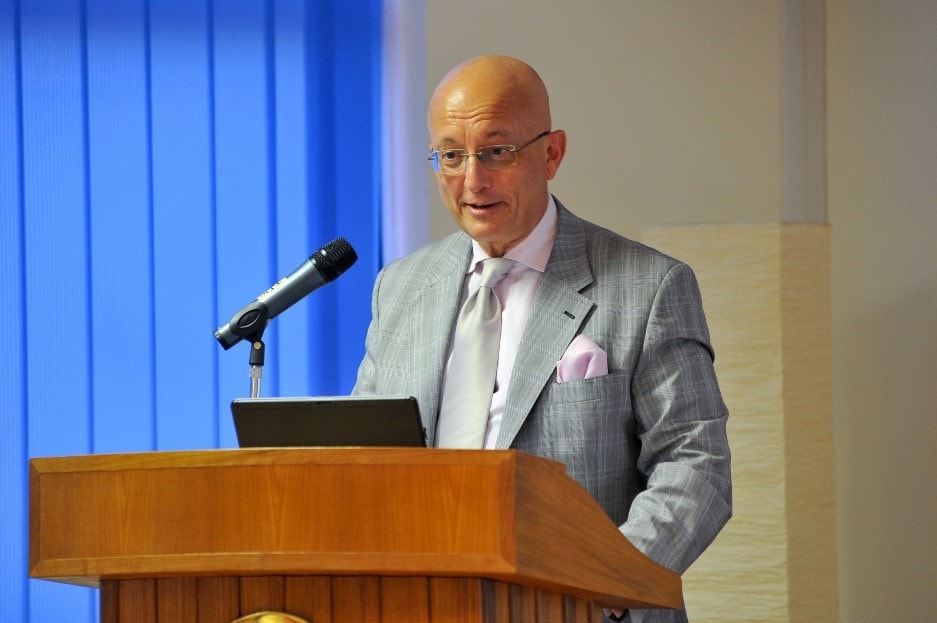A previous MEMRI Special Dispatch[1] reported that Russian liberals believe that the crisis in Belarus and the attempted poisoning of Alexei Navalny had exhausted the West's patience for Russia, with the assumption that this impatience will be translated into harsher sanctions. However, this view is challenged by many in Russia. Understandably, this opinion is widely held by regime backers but one can also encounter it among liberals who take a dim view of Western backbone. One of the best statements of Russian liberal pessimism was penned by Mk.ru's veteran correspondent Aleksander Minkin who wrote: "The European democracies did nothing about the events in Belarus, except for polite statements, they 'watched'. Just as clever passers-by stand aside, watching a gang of lowlifes beat a woman, they condemn, but no one intervenes.
"Polite statements don't matter. These states are always so clever. Let's not forget how on August 19, 1991 they recognized the State Emergency Committee [the organizers of the coup against Mikhail Gorbachev], and on August 21 (two days later!) They recognized Yeltsin.
The citizens of Russia have learned a lesson (and not for the first time!): The world will not help us."[2] Political scientist Lilya Sheftsova recalled that "the Western response to Russia most often turns out to be a soap bubble. It becomes a reason for Moscow to shrug its shoulders and grin" [3].Conservative writers believed that Europe was divided, exhausted from previous unsuccessful attempts at intervention, realized that Russia could not be bullied and attempts to punish Russia would backfire against themselves. Additionally, Russia expected to make hay out of the Western legal process to evade punishment. A survey of conservative opinion discounting the prospects of serious Western intervention follows below

In this cartoon in Dw.com's Russian service, the cartoonist Sergei Elkin has Chancellor Angela Merkel telling Putin "We demand an investigation on who poisoned Navalny" Putin responds Ya! [I did it] Oy that is ja, ja! (The Russian word for I and the German word for yes sounds the same)
It Will Hurt Us More Than Russia
Russia Today cited the German economist Gabriel Febelmeyer who opposes steps against the Nordstream pipeline. As the economist notes, sanctions have a good chance of success when a large party or a large coalition imposes them against a small country. This means that Russia or, for example, China are bad targets for penalties. In addition, Febelmeyer noted that, starting in 2014, Russia managed to surprisingly quickly become independent from a large number of imported products. For example, we managed to reform the agrarian sector at a very fast pace and avoid rising food prices.[4]
The West Is Tired And Divided
In a series of articles for Vzglyad Gevorg Mirzayan, associate professor at the Financial University's Department of Political Science and Mass Communications University explained that the West did not extend full fledged support for the protests in Belarus and explained the reason for its restrained approach:
"On 19 August at the [emergency] EU summit, Charles Michel, head of the European Council said: 'The elections on August 9 were neither fair nor transparent. We do not recognize the results of the elections published by the Belarusian authorities'. Following the meeting, the European Union imposed personal sanctions against 'a significant number of people responsible for the brutality, repression and election fraud'. EU member states are also likely to impose national sanctions individually.
"However, such results at the summit proved disappointing for the Belarusian opposition, because 'personal sanctions will not cause any particular inconvenience for the Belarusian elite':
"Firstly, because the local security forces and government officials affiliated with the president are unlikely to visit European countries now.
"Secondly, as “Deutsche Welle” newspaper correctly writes, 'Lukashenko lived under the sanctions. The ban on entering EU countries means nothing to the president, who can easily spend his vacation in Russian [resort city] Sochi.'
"The EU also allocated 53 million euros to help the protesters (94% of this amount will go to help "the country's business and health system affected by the coronavirus"). The victims (taking into account that about seven thousand people were detained during the protests) will receive about 2 million euros, and another 1 million euros will go to support the “independent media".
The EU limited itself to symbolic sanctions for the following reasons: "First of all, there was neither enthusiasm nor unity on the part of the West in the Belarusian issue. Not only was [opposition leader Svetlanaya] Tikhanovskaya not recognized as the elected president of Belarus - the EU did not even impose any serious sanctions against Lukashenko. And the United States in general withdrew itself from the process, and the staff of the American embassy did not hand out cookies to the protesters [as it did in Kiev during the "Orange Revolution"].
There was fatigue deriving from the fact that color revolutions were too expensive for Europe. Not so much in terms of [the original] investment as in terms of subsequent maintenance. The European Union was able to organize coups - but it failed to build exemplary societies in the post-Soviet states. Not a single country that experienced a color coup has turned into a beacon of democracy and economic prosperity in the post-Soviet space, and some (Moldova and Ukraine), on the contrary, collapsed into ruin.
"Moreover, the pro-European authorities of these countries, being to some extent children of the EU, have obviously discredited their parents. The Moldovans - by the fact that they stole 1 billion euros from the banking system of the country, and the Ukrainian ones - by the fact that they constantly put a spoke in the wheels of Russian-European relations and demanded new funds from Europe for their maintenance.
"These actions not only did not contribute to the strengthening of "colored" sentiments in the post-Soviet space - they, on the contrary, discouraged other countries from trying to arrange something similar. Without a doubt, the example of the Ukrainian Maidan and its consequences became the most important deterrent for the Belarusian protest - choosing between living with Lukashenka and turning their country into another Ukraine, Belarusians preferred the first, lesser evil.
"As for fear, it is fear of Russia. The Kremlin has learned some Ukrainian lessons and made it clear that it is ready to defend the Belarusian people from Western intervention. Given the extremely close relations between Belarus and Russia, the proximity of peoples (including cultural), as well as the existence of various treaties between states, Russian aid could take different forms - from supporting the Belarusian economy to the deployment of troops. The European Union calculated that the West has neither the will, nor the resources, nor the desire to defeat Russia in this confrontation - therefore, Europe has stepped aside. By demonstrating thereby to other "democrats" in the post-Soviet space - the liberal community in countries not yet affected by the Maidan, as well as to the pro-European elites in the states of the victorious revolution - the unwillingness to fight for their interests with Russia. And thereby discouraging them from playing the role of pawns in anti-Russian games."[5]
Sergei Markov, Director of the Institute for Political Studies, also ridiculed the EU response on Belarus: "They [the EU] refused to recognize Tikhanovskaya as president and thus showed that they did not support this puppet of Poland and Lithuania. (...) This is because Germany, France, the European bureaucracy of Brussels hate the authorities of the current conservative Poland, they do not want to strengthen Poland by allowing it to "seize" Belarus and are very afraid of the crazy ventures of both Warsaw and Kiev (which may end with Belarus joining Russia on the model of Crimea or Abkhazia)".
According to Markov, by not recognizing the elections in Belarus, the EU only pushed Lukashenko towards Moscow. Like Mirzayan, Markov scoffed at the "ridiculous" European financial commitment: "53 million will be allocated. From this sum, 3 will go to strikers, media and NGOs. And 50 - to hospitals to fight the coronavirus. I swear this is not a joke! An extraordinary EU summit on Belarus decided to allocate the main support to hospitals in Belarus. I think the doctors will be grateful to Lukashenko for this little help."
“Thus, the extraordinary EU summit on Belarus ended with a devastating victory of Alexander Lukashenko and a complete defeat for Poland, Lithuania and the pro-Western Belarusian opposition.” - concluded Markov.[6]

Gevorg Mirzayan (Source: Ukraina.ru)
The German reaction after the Navalny affair took conservative opinion by surprise. Mk.ru's observer, Mikhail Rostovsky after criticizing the Russian leadership for not investigating the Navalny assassination attempt, still condemned the German reaction. "Official Berlin is not just trying to drive Moscow into a corner. It is driving itself, and Russian-German relations, and the Russian opposition into this very corner. The multibillion-dollar economic partnership between the RF and the FRG, which is extremely important for both countries, is officially becoming hostages of all sorts of 'accidents” - “accidents” that can easily be organized by various interested third forces and countries
He warned opponents of Putin that by appearing to support sanctions they were shooting themselves in the foot:
" A part of the Russian population will have a complete and absolute agreement with this question. They say there is no confidence in our government. Let the Germans do all the necessary work to damage Putin's power vertical!
"However, I must note that an absolute minority will think this way. The absolute majority, having heard about the German ultimatums, will shift their focus from the actual situation with Navalny to the attempts of foreign leaders to dictate to us what and how we should do inside our own country. Who will benefit from this? Definitely not the Russian opposition. For many years, the Russian government has tried to hang the label of a foreign agent on to any Russian citizen who does not like it...But it was impossible to completely solve this problem - until the very time when Angela Merkel was harnessed to the 'cart' and decided to 'protect' the Russian opposition."[7]
Merkel Will Find A Symbolic Way To Quiet Those Who Want To Punish Russia
Viktor Marakhovsky a Ria.ru, columnist predicted that Angela Merkel was looking for a one-off reaction to the Navalny affair resembling the glitzy but totally ineffective Tomahawk strike by Trump against the Assad regime and then get back to business.
" In the eyes of all these forces, the Berlin patient is a direct analogue of the multiple accusations against the Syrian authorities of chemical weapons usage, the video evidence of which was cleverly made by the notorious “White Helmets”. The pressure back then (especially in early 2017) on the newly inaugurated Donald Trump in order to force him to get involved in a full-scale war was enormous.
"But, as we remember, Trump got out of [that predicament] quite skillfully: he ordered a terrible and spectacular blow of dozens of Tomahawks at the Syrian airbase Al-Shayrat. That is, a media analogue of the terrible punishment was made, identical to the natural one; steel muscles were demonstrated; it has been shown that one shouldn’t mess with America, which is great once again. And the next day, Syrian Air Force planes began to take off again from the destroyed airbase, where (more likely as a result of accident) four people died. That is, revenge for the phantom crime against humanity was committed, and a big war was avoided.
"Now the German Chancellor is facing, in essence, a similar task - to try to find her own analogue to the 'strike on the Syrian airbase', only in the political and economic dimension. Keeping in mind that Russia is not Syria and there is no way attack, as well as the fact that cooperation with Moscow in the energy sector...is critical for the German economy and the basic welfare of its citizens." [8]

Viktor Marakhovsky (Source: Newdaynews.ru)
Both Mirzayan and Komsomolskaya Pravda columnist and radio host Sergey Mardan warned against making concessions to Western demands over the Navalny affair. Mardan claimed that the human rights issue had been wielded against Russia since Soviet times and was an American tool to keep Europe in line.
"This is a decades-old strategy used by America against the Soviet Union. As soon as the USSR softened its policy, tried to establish serious economic and trade ties with Western Europe, "human rights", the Jackson-Vannik amendment, the Bukovsky and Sharansky case and others were used...
It may well be that the poisoning of Alexei Navalny is not even being used against Russia (or not only against Russia), but against the emerging political and military alliance between Germany and France, which do not really like the fact that Eastern European countries are actively building "separate" relations with the United States."[9]

Sergey Mardan (Source: Kp.ru)
Mirzayan also claimed that concessions were futile and simply served as a baseline for new accusations: " Avoiding sanctions through a "what would you like [us to do]" will also fail. If solely because Western sanctions have long shifted from a method of inducement or coercion into a routine. Previously, they were an exceptional step, and the victim country understood that if it made a concession, the sanctions would be lifted and they would continue to do business with it. However, in Russia they now realize that sanctions are being adopted against it almost on schedule - and they present cases from long ago days as reasons. Russia's interference in the last US presidential elections, the Skripals case - everything for which Russia has already been punished –is turning into a reason for new punishments. In this situation, any concession will only lead to new threats of sanctions and demands – much more active demands– for new concessions, because the victim has shown a readiness to break.
Mirzayan: Turn This Into A Legal War Of Attrition
Instead, Mirzayan suggested that Russia finesse the issue by adopting a procedural-legal guerilla warfare. Confrontation was dangerous for Russia because this could lead to Russia's becoming a North Korea and, in that case, " the Kremlin, which has closed Europe for itself and found itself in a state of real semi-isolation, will have no choice but to become China's junior partner in realizing Chinese (not Russian, but Chinese) interests, and also satisfy Erdogan's wishes."
"The only winning strategy is humanitarian and legal. A two-directional line of behavior, within whose framework, Moscow first firmly transfers the matter from the emotional plane to the legal one. It....does not threaten the West with punishment for sanctions, but calmly demands from its European partners to provide data on Navalny's condition, evidence that the patient was poisoned, as well as reasons for the Russian Prosecutor General's Office to open a poisoning case. Within the framework of the second vector, Russian doctors express their full readiness to cooperate with Western partners.
"German Foreign Minister Heiko Maas has already said that 'there is no reason not to approve' the request of the Russian Federation to provide information on the poisoning of Navalny. And if Berlin recognized the basis of the Russian Federation to demand data on the poisoning, then it is logical to assume that it has no right to demand any action from Moscow before receiving and analyzing this data. This means that Russia cannot be punished right now for the absence of these actions - with sanctions, censures, etc... The Western reader may get a seditious impression that Russia is most interested in finding the truth in the Navalny case. This means that perhaps the Kremlin really has nothing to do with it."[10]
Ivan Timofeev, program director of the Valdai Club. At the same time, without the support of Russia, such actions are unlikely to be effective - for example, Moscow is unlikely to agree to let in experts from international organizations, where Western countries play a leading role.
Timofeev believed that theoretically, the EU can impose sanctions on key Russian enterprises or officials, but, most likely, it would await the provision of substantive evidence proving the involvement of any structures or persons in the poisoning of Navalny. "The application of sanctions of a general nature, that is, without reference to a specific offense, is not in the style of the European Union," Timofeev explained.[11]
[1] See MEMRI Special Dispatch No. 8927, Russian Liberal Writers Believe That The West Has Lost Patience With Putin After Belarus And Navalny, September 10.2020.
[2] Mk.ru, August 15, 2020.
[3] Echo.msk.ru, September 7, 2020.
[4] Russian.rt.com, September 9, 2020.
[5] Vz.ru, August 23, 2020.
[6] Aif.ru, August 20, 2020.
[7] Mk.ru, September 7, 2020.
[8] Ria.ru, September 5, 2020.
[9] Kp.ru, September 7, 2020.
[10] Vz.ru, September 7, 2020.
[11] Rbc.ru, September 7, 2020.





